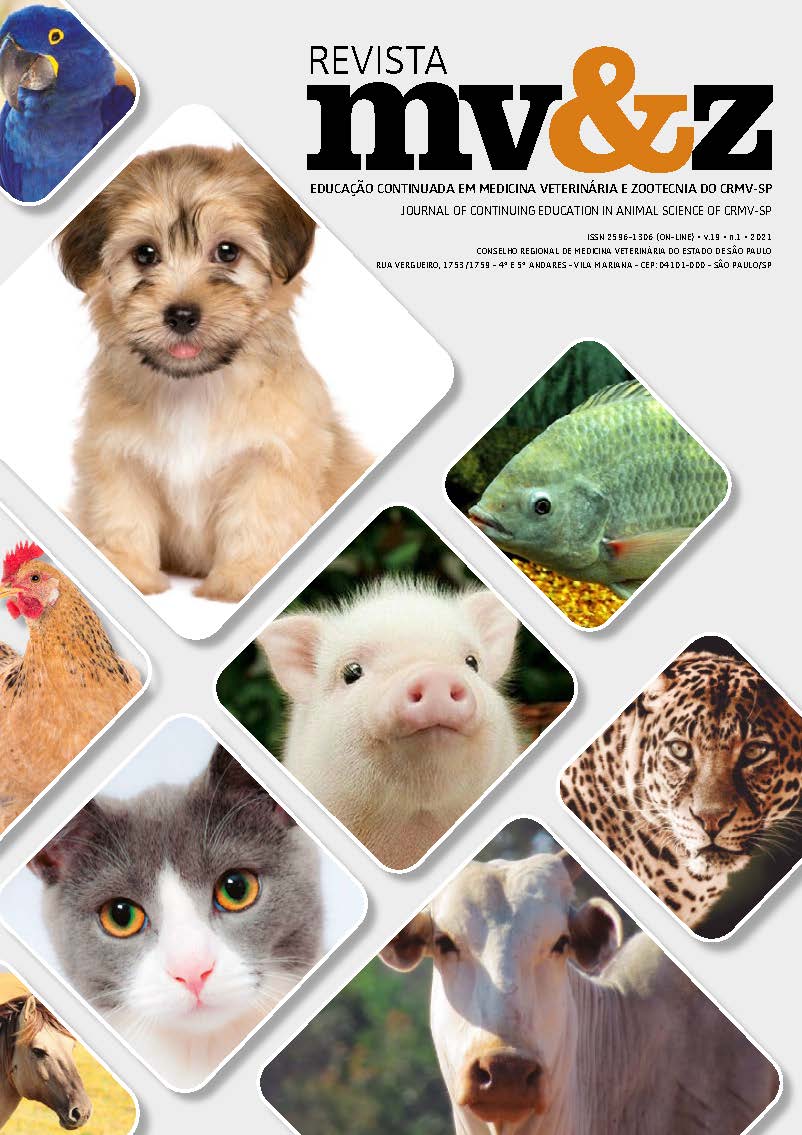Occurrence of suspected zoophilia in veterinary clinical care in Marilia/SP in 2018-2019: veiled and neglected animal abuse
Main Article Content
Abstract
The relationship between men and animals is a complex entity initiated with the domestication of animals and maintained until today that promotes positive effects on human health and behavior. It was demonstrated the psychological and emotional improvement of people due to living with pets, and also an improvement in their quality of life and social interaction in general. However, this relationship has not always been ethical and environmentally correct, since human can also promote all forms of abuse, mistreatment and cruelty to them that are defenseless. In Brazil there are laws for punishment of abuse and mistreatment of animals and among the various types of mistreatment there is zoophilia or bestiality which is the sexual act of humans with animals of other species. From September 2018 to March 2019 it was applied a questionnaire with open questions and multiple choices to 50 veterinary clinicians working in Marília, São Paulo State, Brazil, regarding the suspicion of cases of zoophilia, and it was also discussed the psychological, cultural aspects and specific legislation about this matter. The results obtained showed that 27 (54%) of the veterinarians reported the suspicion of zoophilia with more occurrence in females than males, and the most affected species were dogs, horses, small ruminants and ruminants. Finally, it was performed a discussion showing that the settlement of a specific legislation criminalizing zoophilia it is necessary to build a fairer and
less harmful and violent society, and that the people who practice it must be properly treated by a competent professional, as it is also an indication of psychological problems.
Article Details
1. Autores mantém os direitos autorais e concedem à revista o direito de primeira publicação, com o trabalho licenciado sob a Creative Commons Atribuição-NãoComercial-SemDerivações 4.0 Internacional
2. Autores têm autorização para assumir contratos adicionais separadamente, para distribuição não-exclusica da versão do trabalho publicada nesta revista (ex.: publicar em repositório institucional ou como capítulo de livro), com reconhecimento de autoria e publicação inicial nesta revista.
3. Autores têm permissão e são estimulados a publicar e distribuir seu trabalho online (ex.: em repositórios instituicionais ou na sua página pessoal) a qualquer ponto antes ou durante o processo editorial, já que isso pode gerar alterações produtivas, bem como aumentar o impacto e a citação do trabalho publicado (Veja O Efeito do Acesso Livre);
